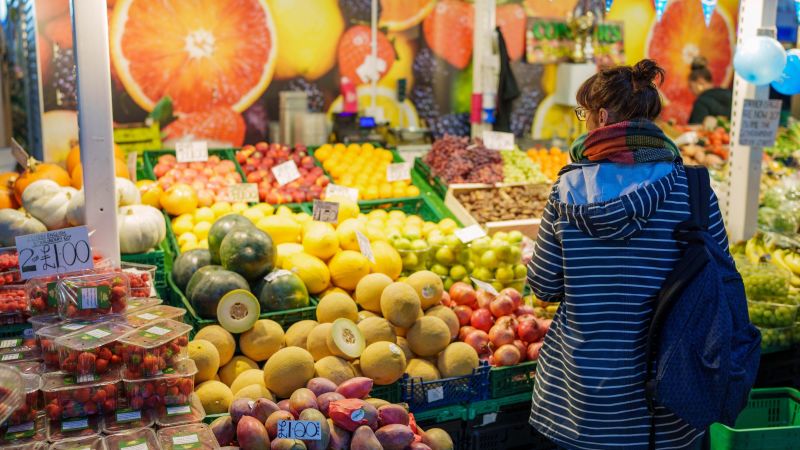
London
CNN Business
—
Rising food and energy costs drove UK inflation back to a 40-year high in September, but it could be nearing a peak as cash-strapped households pull back on spending amid broader economic turmoil.
The annual rate of inflation rose to 10.1% in September, up from 9.9% in the 12 months to August, the Office for National Statistics said on Wednesday. That returns it to July’s recent high.
Soaring food prices were the largest single contributor to the acceleration in inflation, jumping 14.6% year-on-year, the ONS said.
The return to double-digit inflation will be worrying for the Bank of England, which meets on November 3 to set interest rates. Governor Andrew Bailey has said that a “stronger response” may be needed to get a handle on price rises.
The central bank will evaluate rising price pressures against the government’s recent U-turns on unfunded tax cuts, which could help ease inflation in the coming months.
“The dramatic scaling back of fiscal support by the new Chancellor will be seen as lowering medium-term inflation, and that’s what [Bank of England] policymakers will be more interested in,” James Smith, developed markets economist at Dutch bank ING, said in a note on Wednesday.
The bank now expects policymakers to hike interest rates by three-quarters of a percentage point next month, instead of by a full percentage point. ING economists think inflation is likely to peak this month and begin to ease in 2023, as supply chain bottlenecks improve and consumer demand flags.
Energy prices remain a big unknown, however, after Hunt said Monday that the government will universally cap prices only until April. More targeted support after that could trigger a fresh spike in energy bills for many households, fanning inflation once again in the spring.
Goldman Sachs warned that inflation could leap to 11.9% year-over-year in April from its current forecast of 7.1% and “stay higher throughout 2023,” depending on what the government decides to do.
Rising prices come as wage growth continues to decline in Britain. Between June and August, average pay fell by 2.9% once inflation is taken into account, according to the ONS. That followed a decline of 3% between April and June, which was the biggest drop in real wages since records began more than 20 years ago.
The UK government, meanwhile, is debating cuts to public spending in order to get a handle on its growing debt load, piling more pain on households at a difficult moment.
Responding to the latest inflation figures, Hunt said the government “will prioritize help for the most vulnerable while delivering wider economic stability and driving long-term growth that will help everyone.”
According to the ONS, price increases in September were partially offset by a fall in the cost of gasoline and airline tickets. “While still at a historically high rate, the costs facing businesses are beginning to rise more slowly, with crude oil prices actually falling in September,” director of economic statistics Darren Morgan said.
Inflation is a growing headache for policymakers across Europe, which is grappling with an energy crisis following Russia’s invasion of Ukraine. Soaring energy costs and rising food prices drove the eurozone’s annual rate of inflation to 9.9% in September, up from 9.1% in August, Eurostat said Wednesday.
— Julia Horowitz contributed to this report.

